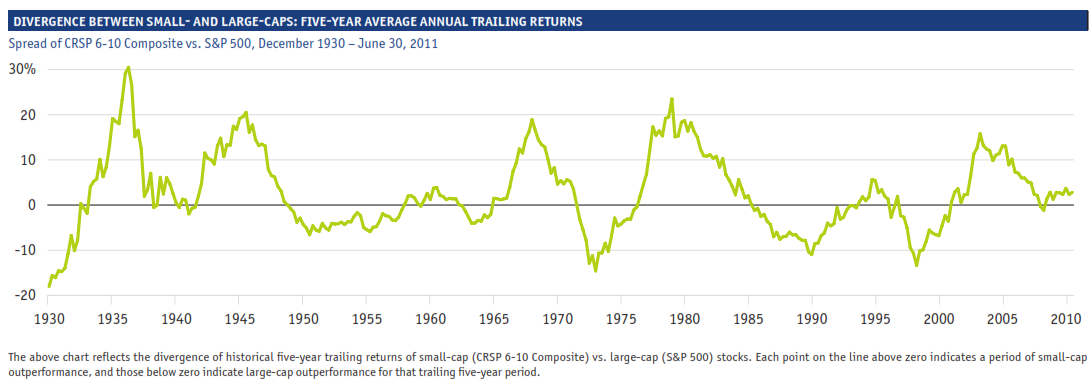By Michael Tarsala
Small caps. They are the one and only asset class favored by successful, high IQ investors, based on a recent academic study making its way around the blogosphere (see related post).
Why? Long-term performance. The Royce Funds does a nice job of stating the facts in this report. Here’s the key table:

Source: The Royce Funds
Royce compares Chicago Booth’s CSRP 6-10 Index (the Russell 2000 has stocks that are very similar in size) to the S&P 500 over more than 80 years. Not many of us will be investing for that long. Still the point is made. The CSRP 6-10 outperformed by more than four-fold over that timeframe.
That said, you can expect a bumpy ride. That same report from Royce notes that small caps tend to lead the S&P — as well as lag it — once a decade, going back to 1930 (as seen in this smoothed chart, with 5-year average trailing returns, below).

Source: The Royce Funds
But if you ask me, there may be an even smarter reason to think about small cap stocks: Diversification.
A 2006 study by researchers at the University of Hawaii, Georgia Institute of Technology and Singapore Management University makes two important conclusions:
- Large-cap stocks tend to “co-move”, working against the benefits from international diversification.
- Stocks of local small companies do not showthat same tendency.
As a result, small-caps may be better for those seeking portfolio diversification.
Covestor offers 19 different models focused on small cap stocks under a range of strategies. For example, see Small Cap from Gator Capital.
Performance and fee information is available on our site, and the model managers also post their trades, move for move. Whatever you choose, (or none of the above), know that there may be advantages to owning small caps that go beyond their long-term performance.



